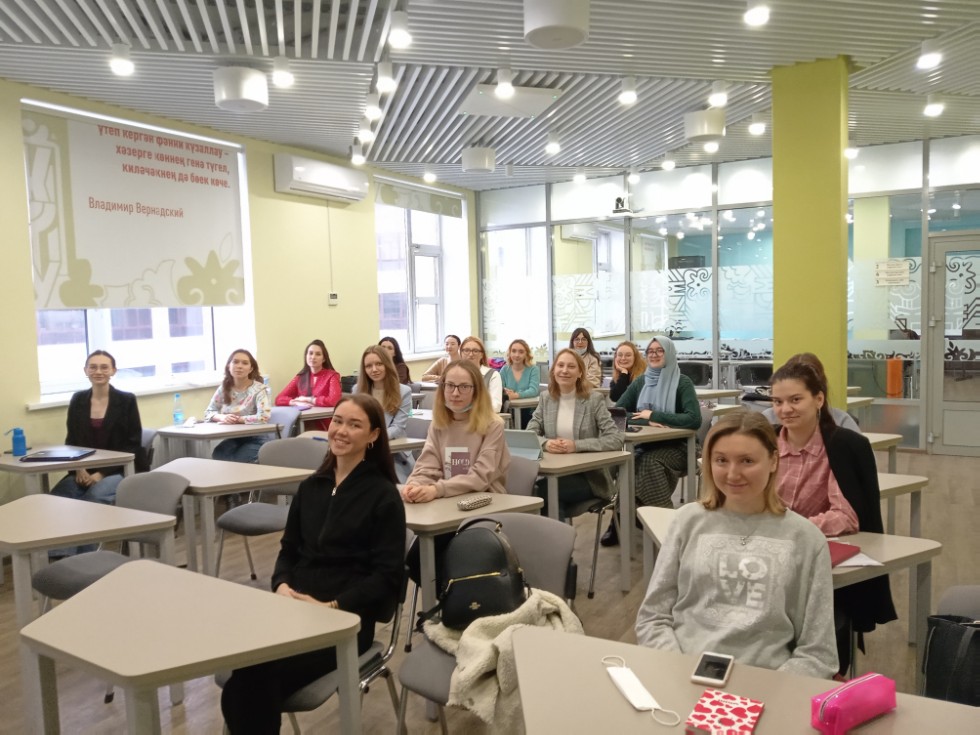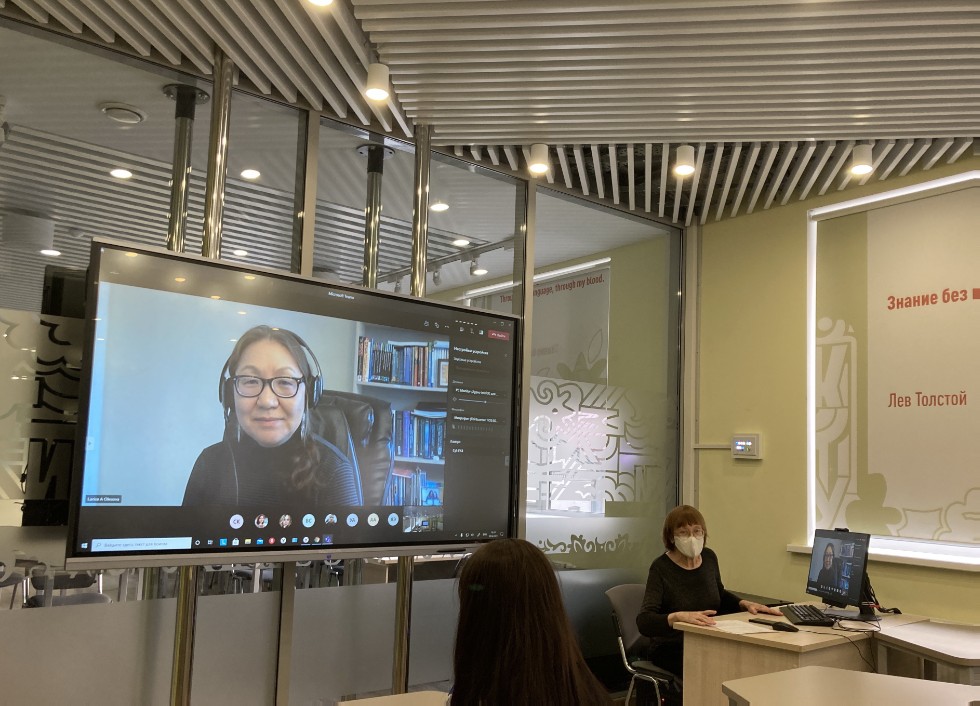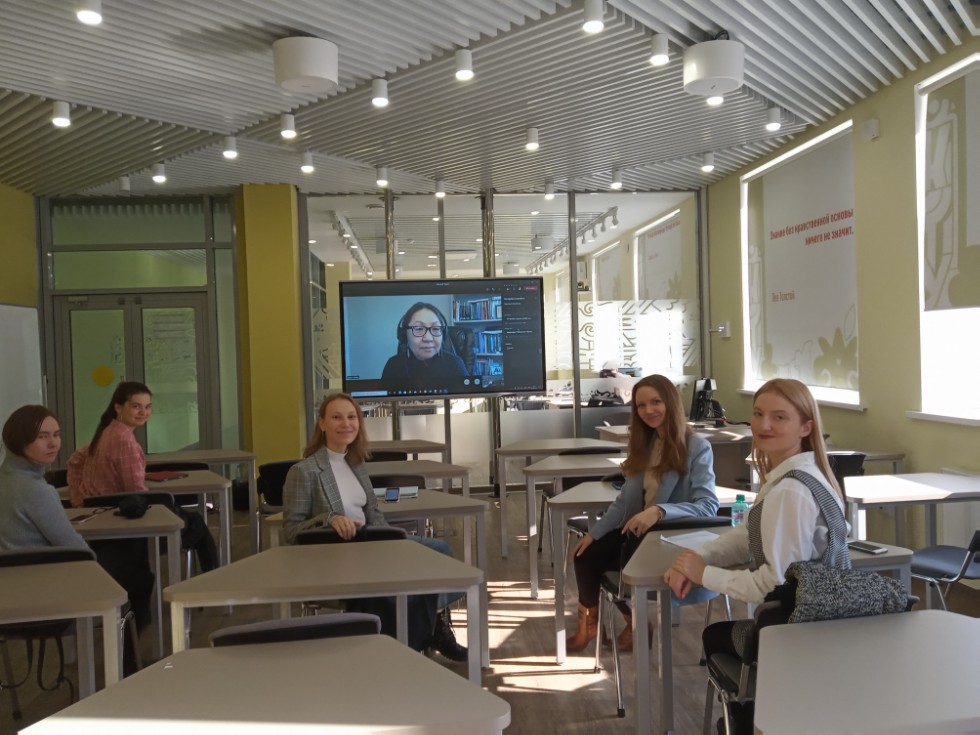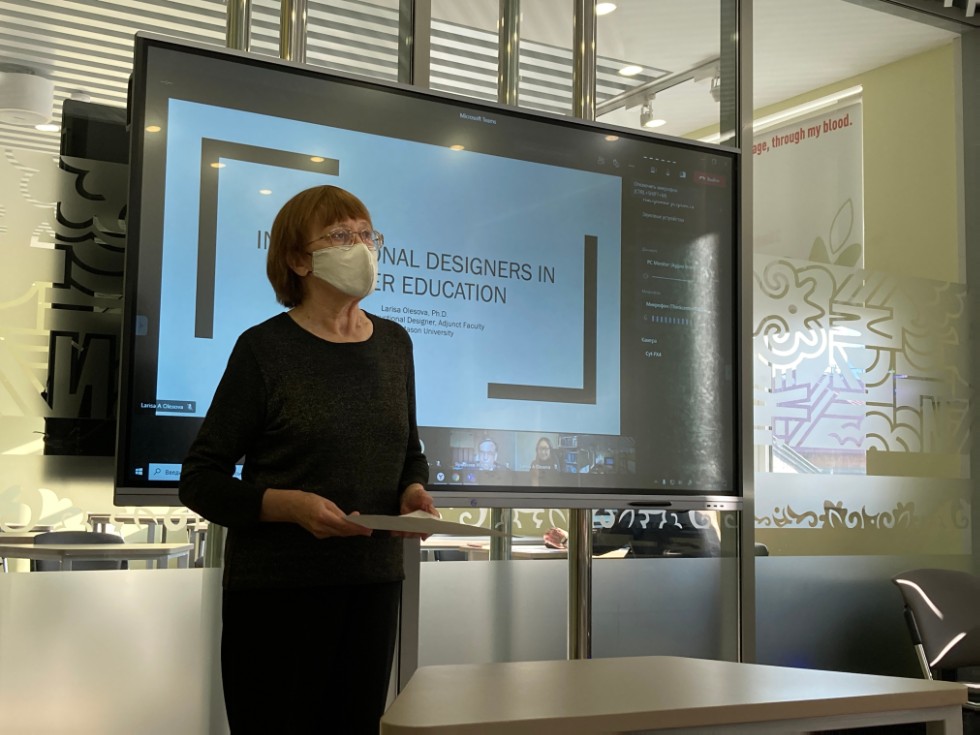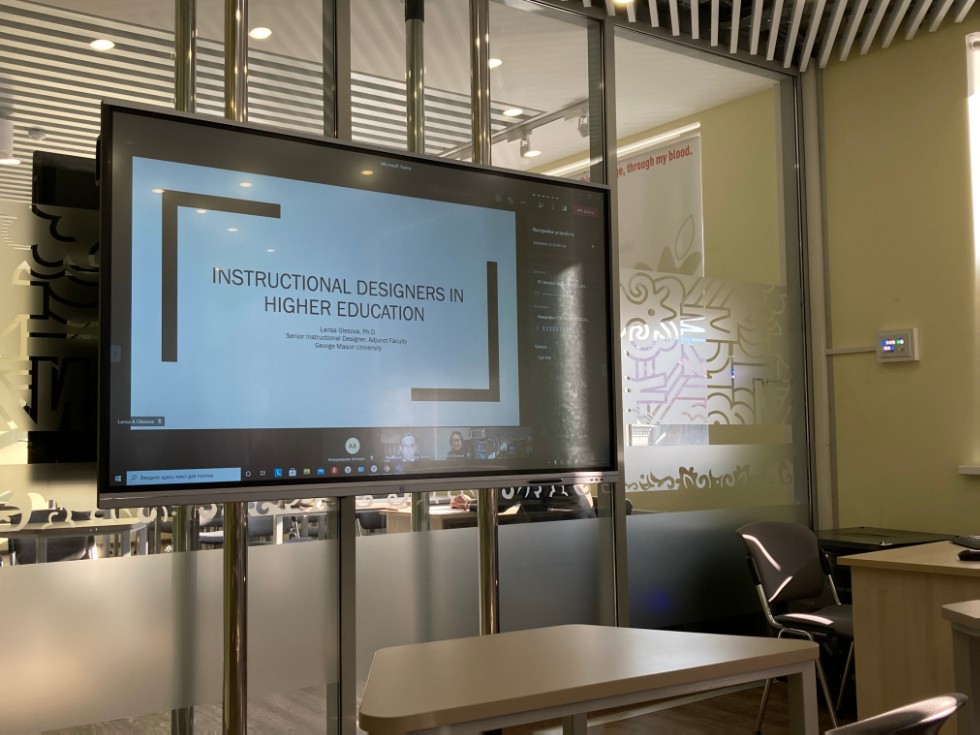International webinar 'NEW TECHNOLOGIES IN THE VUCA-WORLD'
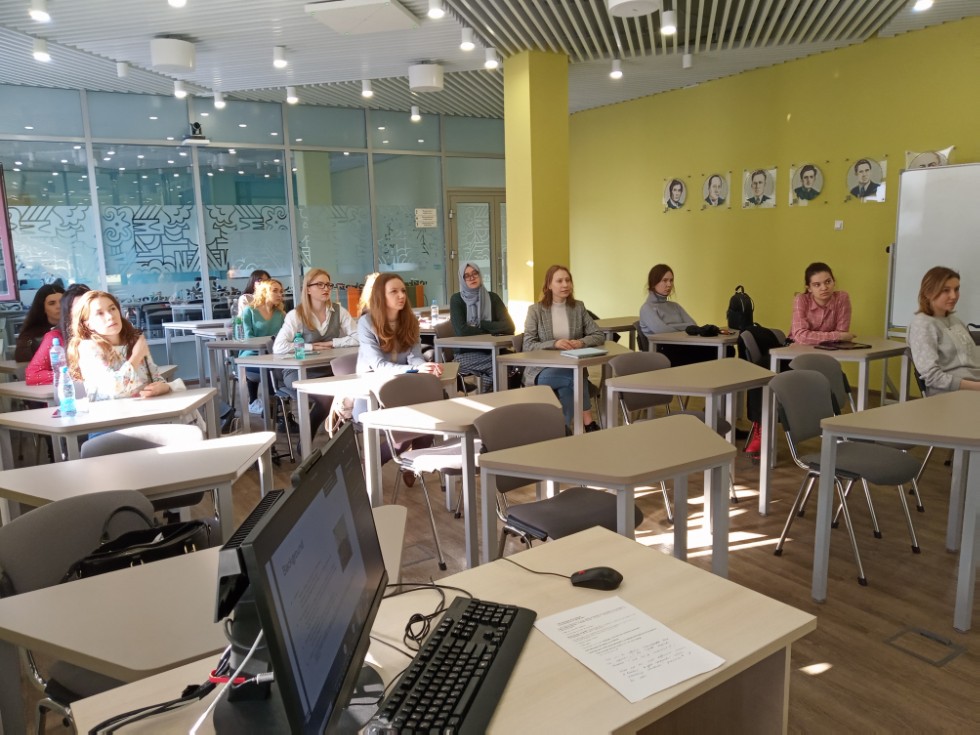
INTERNATIONAL WEBINAR
NEW TECHNOLOGIES IN THE VUCA-WORLD
RUSSIA – USA
April 8, 2021
On April 8, 2021 the Institute of Philology and Intercultural Communication of Kazan Federal University hosted an international webinar “NEW TECHNOLOGIES IN THE VUCA-WORLD” for teachers and MA students.
This webinar is one of the international projects organized by the Department of Bilingual and Digital Education of the Institute of Philology and Intercultural Communication of Kazan Federal University (Russia). This year there have been successfully conducted two International webinars with our foreign colleagues from India “School Mission” (https://kpfu.ru/eng/academic-units/humanities/philology-culture/webinar-school-mission-opened-a-series-of-397669.html) and Israel “Fostering Positive Affect in Language Learners Online and In-Class” (https://kpfu.ru/philology-culture/mezhdunarodnye-proekty-nabirajut-oboroty-402244.html).
This webinar was devoted to the up-to-date topic – New technologies in the VUCA-world.
The Webinar started with a welcoming speech of the Deputy Director of the Institute of Philology and Intercultural Communication of Kazan Federal University Iskander Yarmakeev who said:
“I am glad to welcome you on behalf of the Director of the Institute of Philology and Intercultural Communication of Kazan Federal University – Professor Radif Zamaletdinov and our academic community. This webinar is the third international project organized by our Institute and is aimed at developing a greater understanding of world educational systems and a more internationalized perspective on teaching and learning processes.”
The presenter – Larisa Olesova, PhD, Sr. Instructional Designer from George Mason University (USA) – discussed the following topics:
✔ Instructional design and educational technology in higher education
✔ What instructional designers in higher education do
✔ Theoretical foundation in instructional design
✔ Misconceptions
✔ Instructional designer competencies
✔ Higher education vs industry
✔ Courses
✔ Online vs traditional
The topics were thought-provoking and triggered discussion on a wide range of issues related to the theme of the webinar.
We thank Dr. Olesova for a meaningful, informative and interesting presentation and hope that the participants have benefited from this web meeting. Such events offer a unique opportunity to the younger generation to enter the culture of different countries and develop international views on educational processes. The organizers of the Webinar believe this Webinar marks a good beginning of a long-term and fruitful international collaboration between our academic communities.
Source of information: Tatiana S. Pimenova







